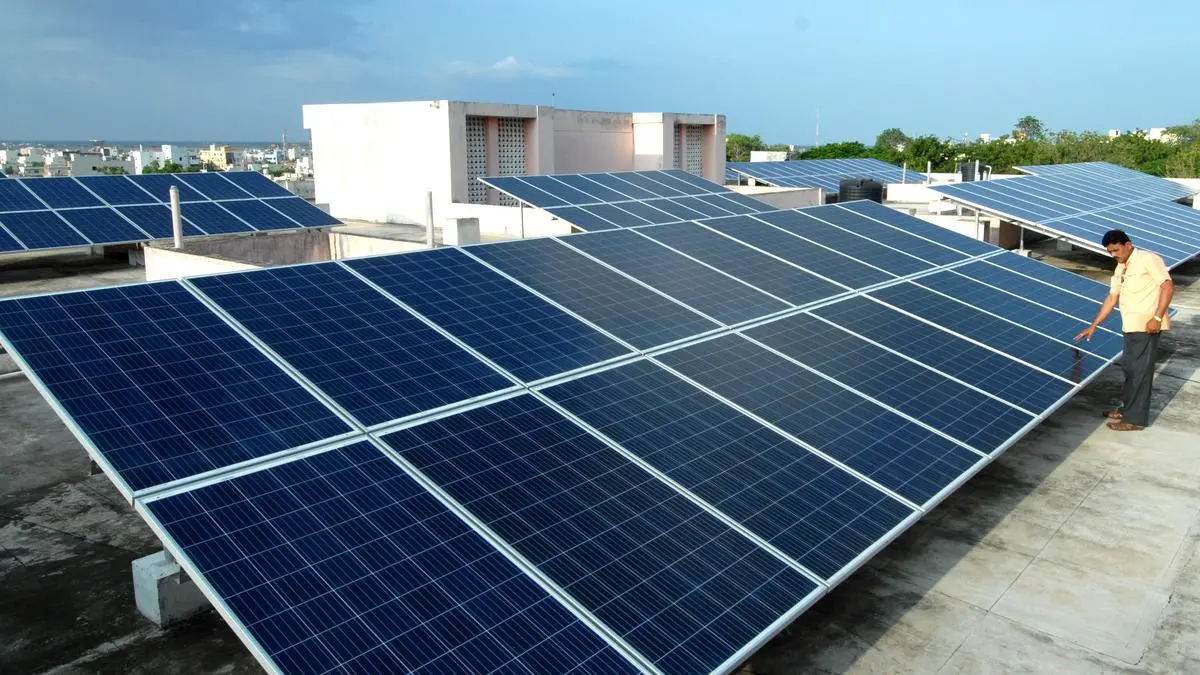By Rohan Das
Copyright thehindubusinessline

The new GST 2.0 reform is expected to significantly bolster the adoption of rooftop solar systems in India.
The reduction in GST rate from 12 per cent to 5 per cent will bring down the cost of capital for companies and add savings to customers, experts and industry players, said.
Vikram V, Vice President & Co-Group Head, Corporate Ratings, ICRA, says that the new rate rationalisation is expected to bring down the cost of capital by around 4-5 per cent. “The rooftop solar sector had been growing at a strong rate even before the tax cuts, given the government’s subsidies and renewable energy push. With the tax reduction, overall system cost will go down and stimulate further demand,” he added.
As of August 2025, India’s installed rooftop solar capacity stood at 20,850 megawatts (MW), going up 37 per cent year-on-year. Rooftop solar accounted for nearly 17 per cent of the overall 1.2 lakh MW solar power capacity.
Among the states, Gujarat led the way in terms of installed capacity with 5,900 MW, followed by Maharashtra and Rajasthan with 4,086 MW and 1,773 MW, respectively.
Ramneek Sehgal, Chairman & Managing Director, Ceigall India, believes that for an average household, the upfront investment required for installing rooftop solar would come down by roughly 5–7 per cent. The new rates would apply to modules and inverters, which contribute to close to 60-70 per cent of the cost. With most households usually opting for a 3-kilowatt solar system costing around ₹2 lakh, a slab reduction to 5 per cent would mean savings of about ₹10,000,” he said.
Sehgal added that the parts that will now be under the new 5 per cent GST bracket would include solar panels and photovoltaic (PV) cells, solar power generators, solar water heaters and manufacturing used in the production of solar energy devices.
According to Jimit Devani, Partner at Deloitte India, the impact of the GST rate cut on rooftop solar systems will be lower than the headline figure, since it applies only to goods. “While the headline GST reduction is 7 per cent, most composite work contracts comprise about 70 per cent goods and 30 per cent services. Accordingly, the effective GST incidence falls by 4.9 percentage points — from 13.8 per cent to 8.9 per cent,” he added.
Devani also suggests that the increase in tax for coal and other non-renewable products will also play a role in the increased adoption of solar power. “The strategic tax shift highlights the government’s commitment to making solar power more affordable and competitive, encouraging a sustainable transition away from fossil fuels,” he added.
Coal, which previously attracted 5 per cent GST along with a ₹400 per tonne compensation cess, now falls under 18 per cent GST, while GST on oil & gas exploration services has also risen from 12 per cent to 18 per cent, raising operational costs for traditional energy producers.
More Like This
Published on September 17, 2025



